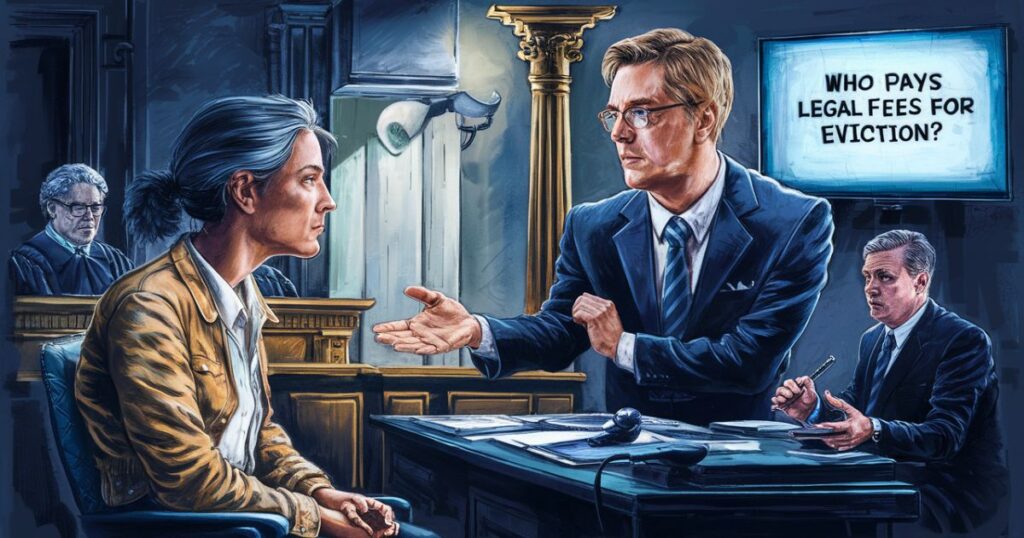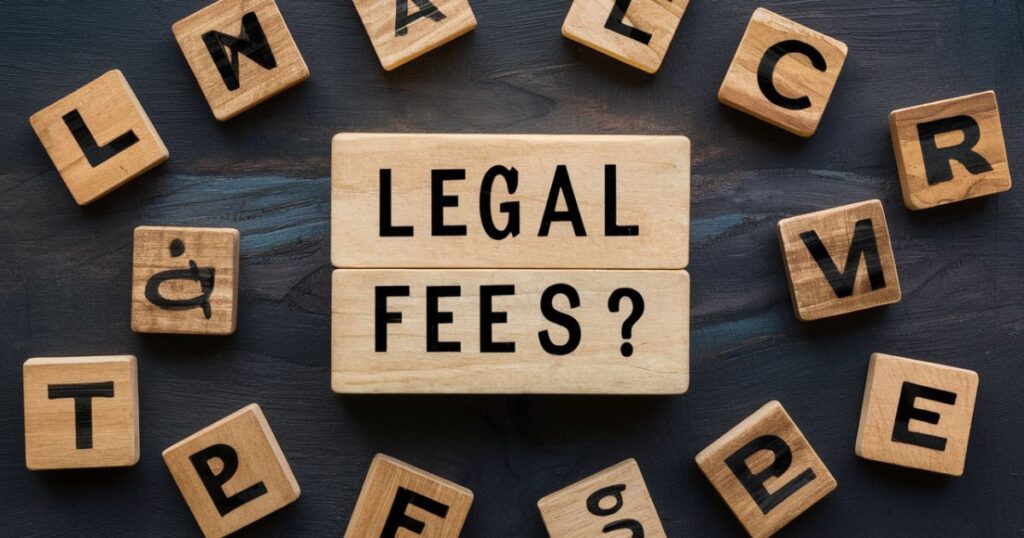A landlord cannot typically charge eviction fees beyond what is legally required for the actual eviction process. Fees for eviction must be explicitly stated in the lease agreement or mandated by local laws.
Ever wondered if your landlord can hit you with extra charges when you’re being evicted? Discover the truth behind eviction fees and what you can do to protect yourself.
Legally Sound Reasons to Evict
Eviction is a serious action that landlords must handle with care and legal precision. Here are some legally sound reasons for eviction:
- Non-Payment of Rent: This is the most common reason for eviction. If tenants consistently fail to pay their rent on time, landlords have a legitimate reason to seek eviction. However, landlords must follow local laws, which typically require giving tenants a formal notice to pay overdue rent or vacate before proceeding with eviction.
- Violation of Lease Terms: Tenants must adhere to the terms of the lease agreement. Violations such as unauthorized subletting, keeping pets without permission, or causing significant damage to the property can be grounds for eviction. Landlords usually need to provide a notice specifying the breach and allow time for tenants to rectify the issue before filing for eviction.
- Illegal Activities: Engaging in illegal activities on the premises, such as drug dealing or other criminal behavior, provides a valid reason for eviction. Landlords must be able to substantiate these claims with evidence and often need to give tenants notice to vacate based on the severity of the activity.
- End of Lease Term: When a lease expires, a landlord can choose not to renew it, thereby requiring the tenant to vacate the property. This reason is usually straightforward but requires landlords to follow proper notice procedures as specified in the lease agreement or local laws.
- Owner Move-In: In some jurisdictions, landlords can evict tenants if they need the property for personal use, such as moving in themselves or housing a close family member. This reason often involves specific notice requirements and can be subject to local regulations to prevent misuse.
Understanding these reasons helps both landlords and tenants navigate eviction processes legally and fairly, minimizing disputes and ensuring compliance with housing laws.
What Is The Cost Of An Eviction?

The cost of eviction can vary widely based on location, complexity, and specific circumstances. On average, eviction costs range from $500 to $3,500. Here’s a breakdown of typical expenses:
- Filing Fees: These fees are paid to the court to initiate the eviction process. They generally range from $50 to $200, depending on the jurisdiction.
- Legal Fees: Hiring an attorney to handle the eviction can be one of the largest costs. Legal fees typically range from $500 to $2,000, though they can be higher for complex cases or if multiple court appearances are required.
- Service Fees: Delivering eviction notices and court documents to tenants often incurs additional costs. Process servers may charge $50 to $150 for their services.
- Court Costs: If the case goes to trial, additional court costs may arise, including fees for court transcripts or other legal documentation, which can add another $100 to $300 to the total.
- Property Repair Costs: After eviction, landlords might face costs to repair any damage caused by the tenant. These expenses vary based on the extent of damage and necessary repairs.
- Moving and Storage Fees: If tenants leave behind belongings, landlords may need to pay for their removal and storage, which can cost anywhere from $100 to $500 or more.
These costs help landlords budget effectively and prepare for the financial implications of eviction. Additionally, considering alternatives like mediation or payment plans can potentially reduce these expenses.
Other Costs of Eviction
In addition to the primary expenses associated with an eviction, landlords might encounter several other costs that can impact their overall budget. Here are some additional considerations:
- Loss of Rental Income: During the eviction process, landlords may experience a gap in rental income. This period can vary from a few weeks to several months, depending on how quickly the eviction is resolved and the time needed to find new tenants.
- Property Management Fees: If landlords use a property management company, they may incur extra costs for managing the eviction process and finding a new tenant. These fees can range from 5% to 10% of the monthly rent.
- Cleaning and Maintenance: After an eviction, landlords often need to clean and maintain the property to make it ready for new tenants. This can involve deep cleaning, painting, and other maintenance tasks, with costs potentially ranging from $200 to $1,000 or more.
- Legal Challenges and Appeals: In some cases, tenants may challenge the eviction or appeal the court’s decision, leading to additional legal costs. This can include further legal fees and extended court proceedings.
- Advertising Costs: Finding a new tenant can involve expenses for advertising the property, including online listings, signage, and possibly hiring a realtor. Advertising costs can range from $50 to $500, depending on the method and duration.
- Emotional and Administrative Costs: Evictions can also take a toll on landlords’ time and stress levels. Managing the emotional aspects of dealing with evictions and the administrative burden of handling paperwork and court procedures can be significant.
Being aware of these additional costs can help landlords prepare better for the financial and logistical challenges associated with evictions, and possibly find ways to mitigate some of these expenses.
Who pays legal fees for eviction?
When it comes to eviction, the responsibility for paying legal fees generally falls on the landlord. Typically, landlords must cover the costs associated with hiring an attorney to handle the eviction process, which can include preparing legal documents, representing the landlord in court, and navigating local laws.

However, in some jurisdictions, if the lease agreement includes a clause specifying that the tenant is responsible for legal fees in the event of eviction, the tenant may be required to reimburse the landlord for these costs. It’s important for landlords to review their lease agreements and local regulations to understand their rights and obligations regarding legal fees. Additionally, tenants may also incur their own legal expenses if they choose to contest the eviction, making the process potentially costly for both parties involved.
What Can I Do To Avoid The Possibility Of Eviction?
To avoid the possibility of eviction, proactive measures can make a significant difference. First and foremost, maintain open and honest communication with your landlord. If you’re facing financial difficulties or other issues, discussing them early can lead to potential solutions, such as payment plans or temporary rent reductions.
Additionally, always adhere to the terms of your lease agreement, including paying rent on time and following property rules. Regularly review your lease to ensure you understand your rights and obligations. If issues arise, address them promptly rather than waiting for them to escalate. Keeping your living space in good condition and promptly addressing any maintenance issues can also prevent disputes with your landlord.

Lastly, consider seeking legal advice if you’re unsure about your rights or if you anticipate problems that might lead to eviction. Taking these steps can help you manage potential challenges and maintain a positive rental experience.
Factors That Can Affect The Cost Of Hiring An Eviction Lawyer
- Complexity of the Case
- Description: Simple eviction cases typically cost less than those involving complicated legal issues. Factors like disputes over lease terms, counterclaims by the tenant, or challenges to the eviction can increase legal fees.
- Impact: More complex cases may require additional legal research, extended court appearances, and possibly more negotiation, which can drive up costs.
- Geographic Location
- Description: Legal fees vary significantly depending on the location. Attorneys in urban areas or regions with higher costs of living often charge more than those in rural or less expensive areas.
- Impact: The cost of hiring an eviction lawyer in major cities can be substantially higher than in smaller towns or less populous regions.
- Attorney’s Experience and Reputation
- Description: Experienced attorneys with a strong track record in handling eviction cases may charge higher fees for their expertise. Their familiarity with local laws and efficient case management can also influence costs.
- Impact: While higher fees might be associated with more experienced attorneys, their services can potentially expedite the eviction process and reduce other related costs.
- Duration and Scope of the Case
- Description: The length of time the case takes and the extent of the legal work required can affect overall costs. Cases that require multiple court appearances, extensive documentation, or lengthy negotiations will generally be more expensive.
- Impact: Longer or more involved cases incur additional billable hours, increasing the total cost of legal services.
- Additional Expenses
- Description: Beyond attorney fees, there may be additional costs for filing fees, service fees, and other related expenses. These costs can add up, especially if the case involves extensive legal or administrative work.
- Impact: It’s essential to budget for these extra expenses to get a complete picture of the total cost of the eviction process.
Read About : PO Box 340 waite park mn
The Following Factors Can Affect the Cost of the Eviction Process
- Court Fees
- Description: Filing an eviction lawsuit involves court fees that vary by jurisdiction. These fees are necessary to officially start the legal process and can range from $50 to $200.
- Impact: Higher court fees increase the overall cost of eviction, and additional fees may apply for subsequent court filings or appeals.
- Service Fees
- Description: Costs associated with serving eviction notices and legal documents to tenants are part of the process. Service fees typically range from $50 to $150.
- Impact: These fees are crucial for ensuring that legal notices are properly delivered and can add to the total expense.
- Repair and Maintenance Costs
- Description: After an eviction, landlords may need to address property damage or perform cleaning and repairs. These costs can vary based on the extent of the damage.
- Impact: The need for extensive repairs or maintenance work can significantly increase the financial burden following an eviction.
- Lost Rental Income
- Description: During the eviction process, landlords may experience a loss of rental income due to vacancy. The duration of the eviction and time required to find a new tenant can affect the amount lost.
- Impact: Extended vacancy periods and delays in securing a new tenant contribute to financial strain, impacting the overall cost of the eviction process.
Can a landlord charge a tenant for legal fees?

A landlord can charge a tenant for legal fees if such a provision is included in the lease agreement. This clause must clearly state that the tenant is responsible for covering legal expenses incurred due to breaches of the lease or eviction proceedings.
However, without a specific lease agreement clause, landlords typically cannot impose these fees unilaterally. It’s essential for landlords to review their lease agreements and local laws to ensure compliance. Tenants, on the other hand, may also incur their own legal costs if they contest the eviction, adding to the overall expense of the legal process.
Why Hire an Eviction Lawyer?
Hiring an eviction lawyer can streamline the complex and often stressful eviction process. These legal professionals bring expertise in navigating local housing laws, ensuring that all procedural requirements are met and reducing the risk of costly mistakes.
An eviction lawyer can handle paperwork, represent you in court, and negotiate on your behalf, saving you time and effort. Their knowledge helps in dealing with disputes, enforcing lease terms, and managing tenant challenges effectively. By securing a lawyer, landlords can expedite the eviction process and increase the likelihood of a favorable outcome, minimizing disruption and financial impact.
Conclusion:
Navigating the eviction process can be complex and fraught with challenges, making the expertise of an eviction lawyer invaluable. From ensuring compliance with local laws to managing intricate legal procedures, a lawyer can streamline the process and mitigate potential risks. By handling paperwork, representing you in court, and addressing disputes effectively, they help safeguard your interests and expedite the resolution. Whether you’re a landlord seeking to reclaim your property or a tenant facing eviction, professional legal assistance can significantly impact the outcome, ultimately leading to a smoother, more efficient resolution.
FAQ on Eviction Costs:
How long will the process of eviction last?
The eviction process typically lasts between a few weeks to several months, depending on local laws and case complexity.
What can I do to find out if I have been evicted before?
Check court records or ask previous landlords for your rental history to verify if you’ve been evicted.
Are there other options for evicting tenants?
Yes, alternatives include mediation, offering a cash-for-keys agreement, or negotiating a voluntary move-out.
Are legal fee charges common in lease agreements?
Yes, lease agreements often include clauses that require tenants to cover legal fees in case of eviction or lease disputes.







